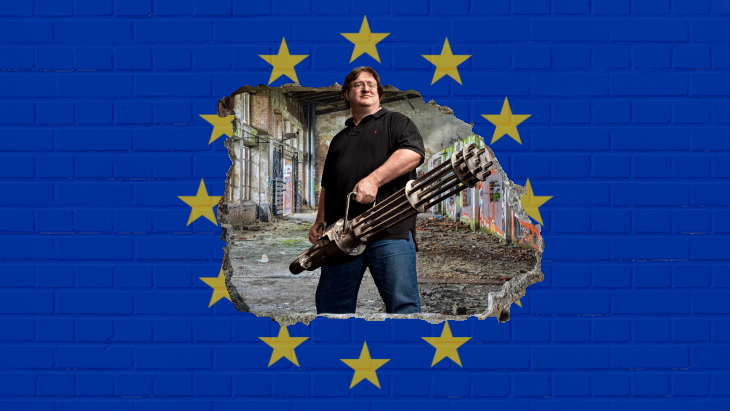
While five video game companies will settle in a lawsuit from the European Union, Valve will instead fight against it.
Reuters reports (citing “people familiar with the matter”) that Bandai Namco, Capcom, Focus Home, Koch Media, Valve, and ZeniMax have been part of an EU antitrust investigation since 2007.
In April 5th of this year, the EU Commission charged those companies for “geo-blocking” game activation keys. As the 28 country bloc has open trade, The EU argues the online stores the above companies own should allow their customers to have the choice of the best deal across all territories within the EU.
At the time, Valve stated the “region-locks” on game activation keys applied to just 3% of the games on Steam, and often at the behest of the publisher. Valve felt the law did not apply to their situation, and while they allowed European keys to be activated within the EU, removing them entirely would result in publishers raising prices:
“Nonetheless, because of the EC’s concerns, Valve actually turned off region locks within the EEA starting in 2015, unless those region locks were necessary for local legal requirements (such as German content laws) or geographic limits on where the Steam partner is licensed to distribute a game. The elimination of region locks will also mean that publishers will likely raise prices in less affluent regions to avoid price arbitrage. There are no costs involved in sending activation keys from one country to another and the activation key is all a user needs to activate and play a PC game.”
According to Reuters’ anonymous source, Valve “is likely to ask for a closed-door hearing to argue its case before senior competition officials from the Commission and national watchdogs.”
In addition, Engadget reports that the five publishers could be charged with only allowing Valve to sell some of their games outside of certain member states (eliminating consumer choice).
Under EU law, companies that admit wrongdoing receive a 10% cut in the fines they will receive. The punishment itself could be a fine up to 10% of the offending companies’ annual income, and force said company to change how it operates. Both of the above laws would be in violation of the EU’s Digital Single Market, regulation with the aims to make any digital service of shop work for any EU citizen- wherever they were within the EU.
When Reuters attempted to contact all of the aforementioned companies, Bandai Namco and Capcom were the only ones to reply. Bandai Namco offered the statement: “It is Bandai Namco Entertainment Europe’s company policy to not comment on any ongoing legal matters.” Meanwhile, Capcom stated they could not provide any further comment until the EU commission came to its decision.